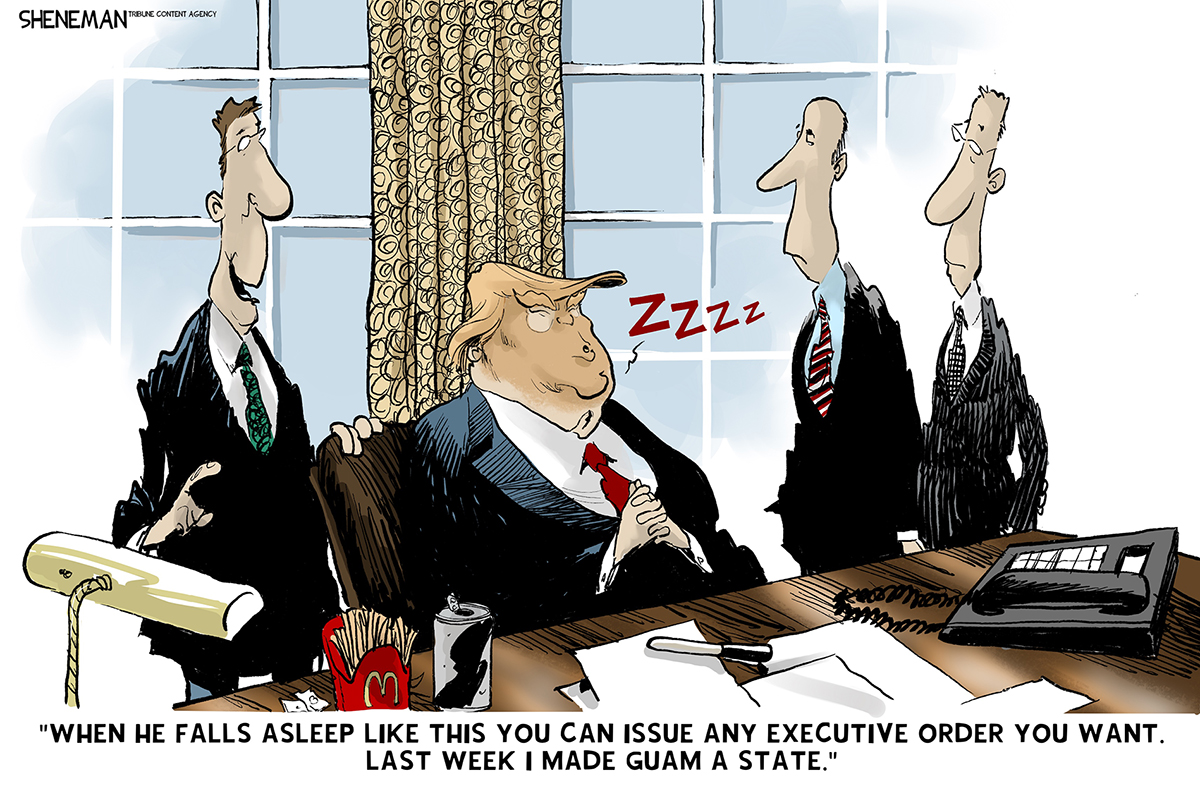This law firm just hired a robot to work as an attorney


Q: What's the difference between a robot and a leech?
A: After you die, a leech stops sucking your blood.
Let's face it. Robot jokes just don't have the same ring as lawyer jokes. But the two might soon be synonymous: One of the U.S.'s biggest law firms has just "hired" the world's "first artificially intelligent attorney."
The Week
Escape your echo chamber. Get the facts behind the news, plus analysis from multiple perspectives.

Sign up for The Week's Free Newsletters
From our morning news briefing to a weekly Good News Newsletter, get the best of The Week delivered directly to your inbox.
From our morning news briefing to a weekly Good News Newsletter, get the best of The Week delivered directly to your inbox.
That means a robot, named ROSS, is the newest member of BakerHostetler, which employs 900 (human) lawyers and 50 alone in its bankruptcy practice, where ROSS works. Created by IBM, ROSS will take on a role normally given to lawyers just starting out their careers — sifting through legal documents that help build the firm's cases, The Washington Post reports.
"ROSS surfaces relevant passages of law and then allows lawyers to interact with them. Lawyers can either enforce ROSS's hypothesis or get it to question its hypothesis," the chief executive of ROSS Intelligence, Andrew Arruda, said. ROSS's software allows lawyers to "upvote" or "downvote" excerpts based on how well the robot interprets their questions, helping it to "learn" how to change its research methods as it goes.
"Eventually, I bet not using these systems will come to be viewed as antiquated and even irresponsible, like writing a brief on a typewriter," law professor Ryan Cato told The Washington Post.
For the time being, though, ROSS is more of an assistant, helping attorneys move faster rather than replacing them completely. In other words, we don't have to start fretting about being conquered by our robot overlords anytime soon.
A free daily email with the biggest news stories of the day – and the best features from TheWeek.com
Or rather...yet.
Jeva Lange was the executive editor at TheWeek.com. She formerly served as The Week's deputy editor and culture critic. She is also a contributor to Screen Slate, and her writing has appeared in The New York Daily News, The Awl, Vice, and Gothamist, among other publications. Jeva lives in New York City. Follow her on Twitter.
-
 Political cartoons for December 4
Political cartoons for December 4Cartoons Thursday’s political cartoons include a nap for Donald Trump, rage bait of the year, artificial intelligence turning on its master and more
-
 Wake Up Dead Man: ‘arch and witty’ Knives Out sequel
Wake Up Dead Man: ‘arch and witty’ Knives Out sequelThe Week Recommends Daniel Craig returns for the ‘excellent’ third instalment of the murder mystery film series
-
 Zootropolis 2: a ‘perky and amusing’ movie
Zootropolis 2: a ‘perky and amusing’ movieThe Week Recommends The talking animals return in a family-friendly sequel
-
 Femicide: Italy’s newest crime
Femicide: Italy’s newest crimeThe Explainer Landmark law to criminalise murder of a woman as an ‘act of hatred’ or ‘subjugation’ but critics say Italy is still deeply patriarchal
-
 Brazil’s Bolsonaro behind bars after appeals run out
Brazil’s Bolsonaro behind bars after appeals run outSpeed Read He will serve 27 years in prison
-
 Americans traveling abroad face renewed criticism in the Trump era
Americans traveling abroad face renewed criticism in the Trump eraThe Explainer Some of Trump’s behavior has Americans being questioned
-
 UN Security Council backs Trump’s Gaza peace plan
UN Security Council backs Trump’s Gaza peace planSpeed Read The United Nations voted 13-0 to endorse President Donald Trump’s 20-point plan to withdraw Israeli troops from Gaza
-
 Chile picks leftist, far-right candidates for runoff vote
Chile picks leftist, far-right candidates for runoff voteSpeed Read The presidential runoff election will be between Jeannette Jara, a progressive from President Gabriel Boric’s governing coalition, and far-right former congressman José Antonio Kast
-
 Venezuela mobilizes as top US warship nears
Venezuela mobilizes as top US warship nearsSpeed Read The largest and most advanced US aircraft carrier, the USS Gerald R. Ford, has entered the Caribbean and put Venezuela on high alert
-
 Nigeria confused by Trump invasion threat
Nigeria confused by Trump invasion threatSpeed Read Trump has claimed the country is persecuting Christians
-
 Gaza ceasefire teeters as Netanyahu orders strikes
Gaza ceasefire teeters as Netanyahu orders strikesSpeed Read Israel accused Hamas of firing on Israeli troops
